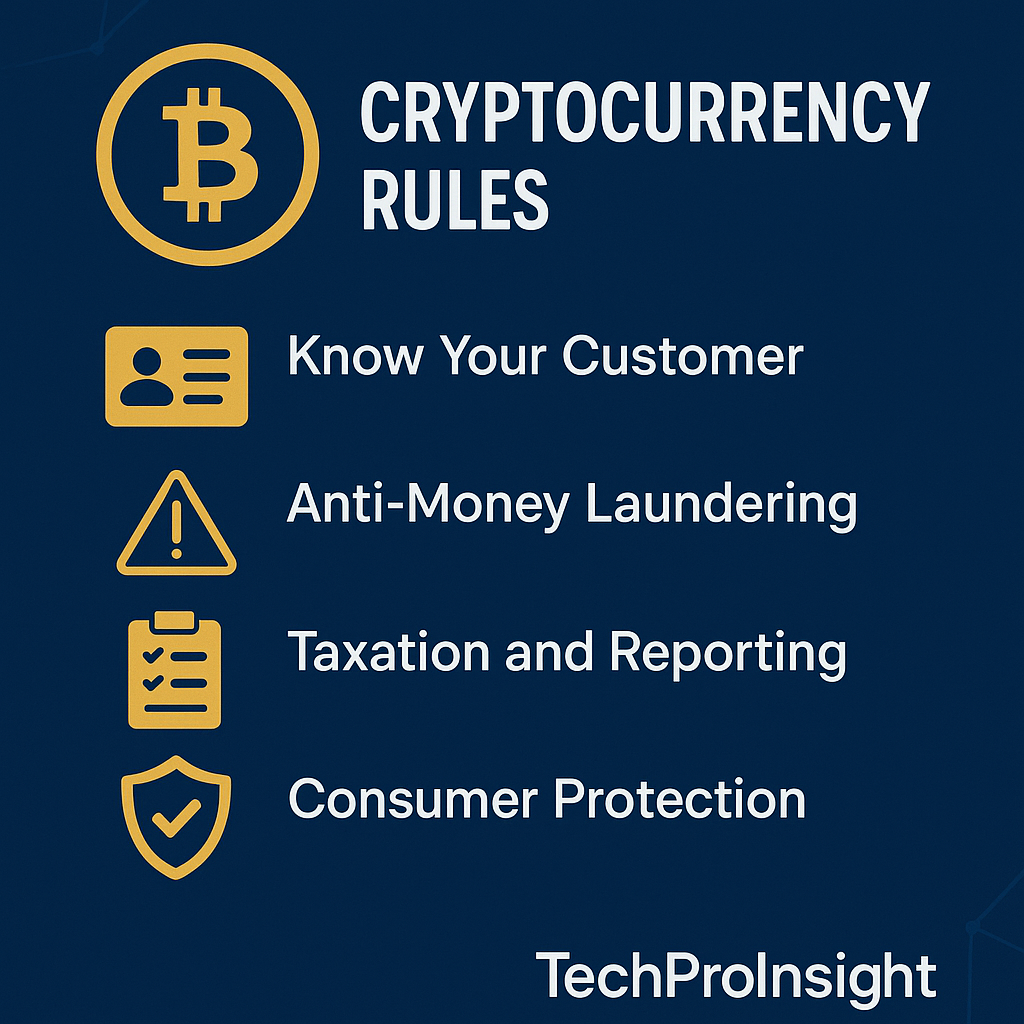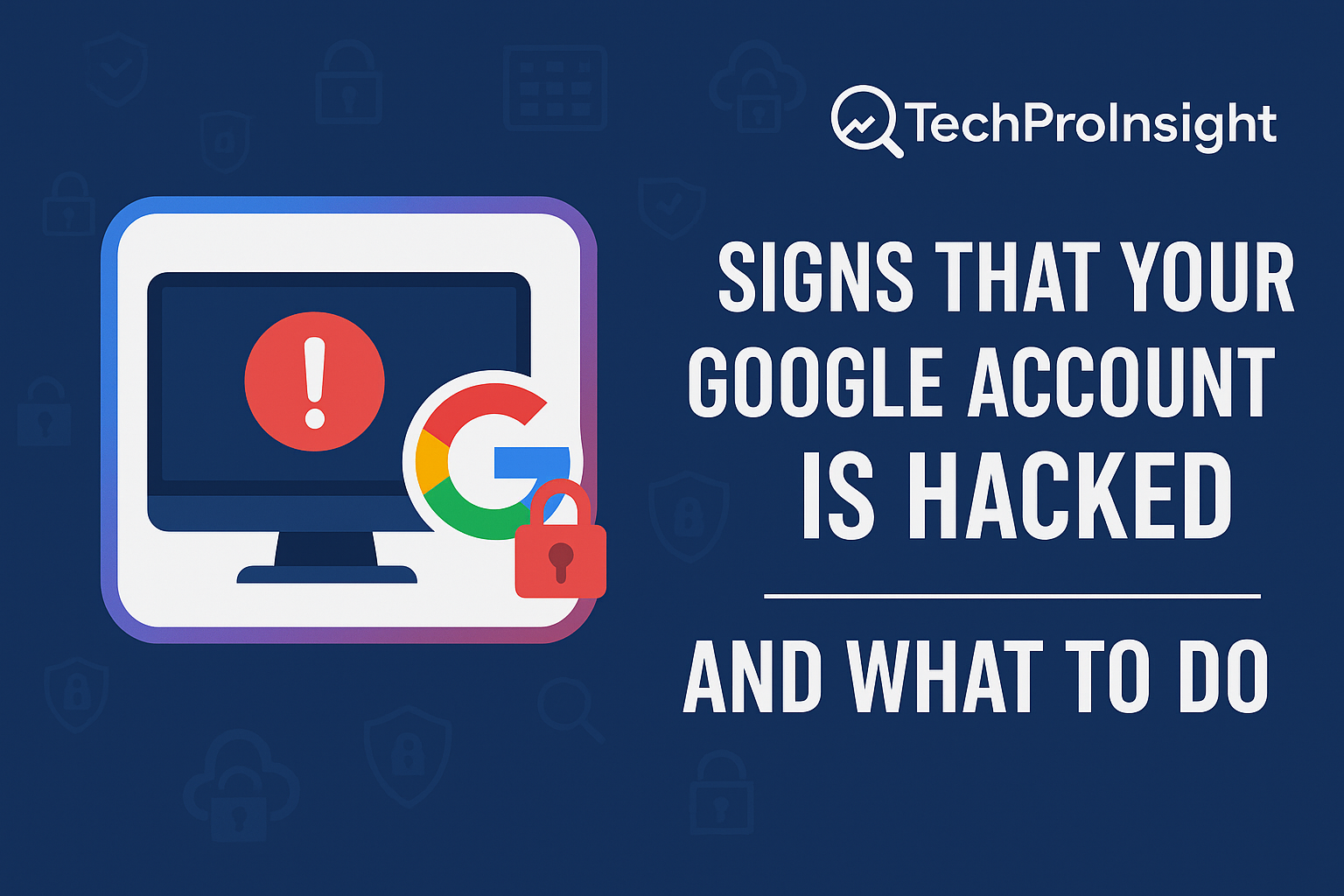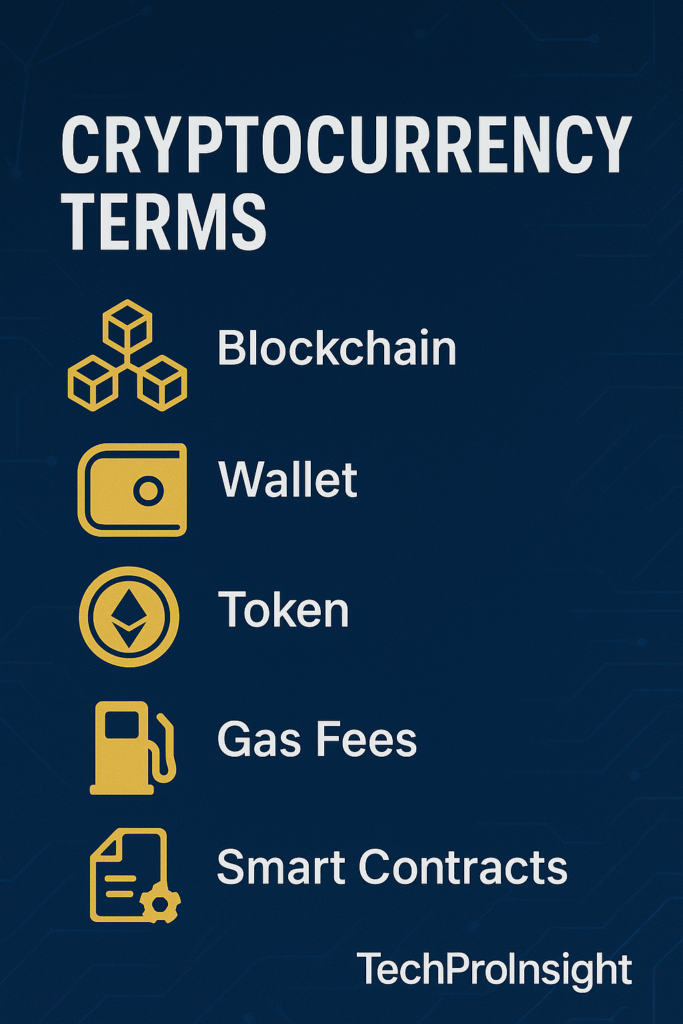Introduction
Crypto currency transformed the way, we think about money, investment and even the privacy. While it brings innovation and independence and it also comes with its own set of rules, some enforced by law and others dictated by the common sense and the best practices.
If you’re getting in crypto currency or already using it, you need to understand how to operate within this digital world securely and the responsibly. Whether you’re a casual user or a serious investor, following these rules can save you from the mistakes, losses or even the legal trouble.
- Learn the Legal Status in Your Country
Before finding anything else, is crypto currency legal in your country and how it’s regulated. Some nations allow full access to trading and the mining while others restrict or ban it altogether.
Authorities may not just regulate whether you can trade — they may also have rules on taxes, declarations, and usage of crypto for payments. Knowing the legal framework protects you from the unintentional violations.
- Track and Report Your Crypto for the Taxes
In most of the countries, crypto currencies are treated as taxable assets. Any profit from selling, exchanging or spending in the crypto is often subject to capital gains tax or income tax.
Even if your crypto is stored in an exchange wallet or held long term, the way you trade or use it, it may become a taxable event. Always maintain the accurate record of your transactions and the wallet balances to avoid surprises when filing taxes.
- Secure Your Crypto: Your Wallet, Your Responsibility
Unlike banks, crypto wallets don’t come with the customer service that can reset your password or reverse a transaction. The moment someone gets access to your private key or seed phrase, they can take your funds and you can’t get them back.
Best practices include:
- Using the hardware wallets for long term holdings
- Keep backups offline
- Enabling two-factor authentication on the wallets and exchanges
- Never share your private keys
- Security isn’t the optional in the crypto, it’s essential.
- Use Only Trusted Platforms
All crypto platforms are not trustworthy. Some disappear overnight, others get hacked, and a few are outright scams.
Before signing up or transferring the funds to an exchange or wallet service, do basic research:
- How long has it been operating?
- Is it regulated?
- Does it have a history of hacks?
- Is customer reviews consistent?
Stay away from the platforms that make the unrealistic claims like “guaranteed profits” or “instant doubling” of funds.
- Understand what you’re investing
Never invest in something that you don’t understand. The crypto currency isn’t just about the coins as Bitcoin or Ethereum. It includes tokens, blockchain based apps and complex financial systems like DeFi (Decentralized Finance).
Before you put the money into any token or the platform, understand:
- What the project does
- Who is behind it?
- Whether it’s been audited
- If it has a working product or just a whitepaper
Doing your own research is one of the most important rules in crypto. Avoid making decisions based on the hype or on social media trends.
- Avoid to share the Wallet Info Publicly
One of the simplest and most overlooked rule is: keep your wallet address private unless the absolutely necessary.
Sharing the wallet addresses on public forums, comments or unverified chats can make you a target. The scammers often use the public addresses to:
- Target phishing attacks
- Create fake airdrops
- Spoof similar-looking addresses to trick you
If you must share an address, do it with the trusted individuals or through the secure channels.
- Stay Away from Pump-and-Dump and Quick-Gain Groups
Many crypto groups or Telegram channels promote the “pump and dump” schemes, where users are encouraged to buy a coin all at once to artificially inflate the price and then early insiders sell for a profit, leaving others with the losses.
Participating in such schemes is unethical, may be illegal in some jurisdictions and almost always ends with the small investors losing the money.
- Learn the Rules of Smart Contracts Usage
Smart contracts allow the crypto to function without human intermediaries. But they are just code and that code can have bugs or hidden vulnerabilities.
Before the interaction with the decentralized apps (dApp), lending platforms and with the liquidity pool:
- Check if the smart contract has been audited
- Look at how long the protocol has been in use
- Test with small amounts first
Losses through the faulty smart contracts are often permanent.
- Stay Updated with Changes
Crypto changes rapidly. Governments introduce new regulations, exchanges update their policies and new technologies emerge every day. Staying informed keeps you safe and helps you make the smart decisions.
Some good practices:
- Subscribe to news letters or the trusted news sites
- Join the social media channels of the coins or the platforms that you use
- Follow up the regulatory announcements of your country
- Being unaware can be as dangerous as being reckless.
- Don’t Rely on Influencers for the Financial Decisions
In the crypto many influencers promote coins or projects they’re paid to endorse. Some genuinely support good technologies while others simply hype coins for short-term gains.
Don’t invest your money based on someone else’s tweets, videos or Telegram messages. Always take time to analyze the project yourself. You are responsible for your money, not them.
- Be Cautious with the New Projects and the Air drops
New projects often offer the free tokens (airdrops) to gain users. But some airdrops are designed to trick users into connecting wallets to malicious apps.
If an airdrop asks for:
- Your seed phrase
- Login credentials
- Wallet approval for unknown transactions
it’s likely a scam. Legitimate airdrops never ask for sensitive information.
- Respect the Ecosystem
Blockchain is a community-driven technology. Every user has a role to play in the maintaining of space’s integrity.
That means:
- Not spamming token groups
- Reporting the bugs instead of the exploiting them
- Supporting the projects that promote transparency
- Avoiding scams even if they look profitable
As the crypto is growing, so it is the responsibility of its users to support a clean and safe ecosystem.
- Practice Patience
Finally, one of the unwritten but vital rules: patience is a crypto virtue.
Markets rise, fall and prices moved unexpectedly. Avoid making decisions in the panic or in the excitement. Set long term goals, develop an investment plan and stick to it. Timing the market is difficult even for professionals.
Let your decisions be driven by the data, not by the emotions.
Final Words
Crypto currency can offer incredible opportunities for the financial growth, privacy and the technological innovation. It’s also full of risks but many of them preventable by following these simple rules.
Educate yourself, use secure tools, respect the ecosystem and always put the safety before speed. In the end, the more you know, the safe and smart your crypto journey becomes.
Visit techproinsight.com for more trusted updates and insights.















